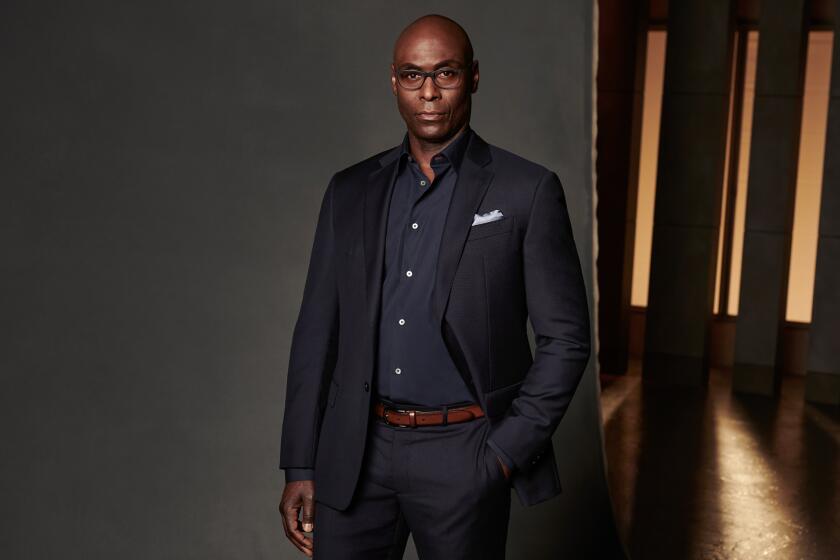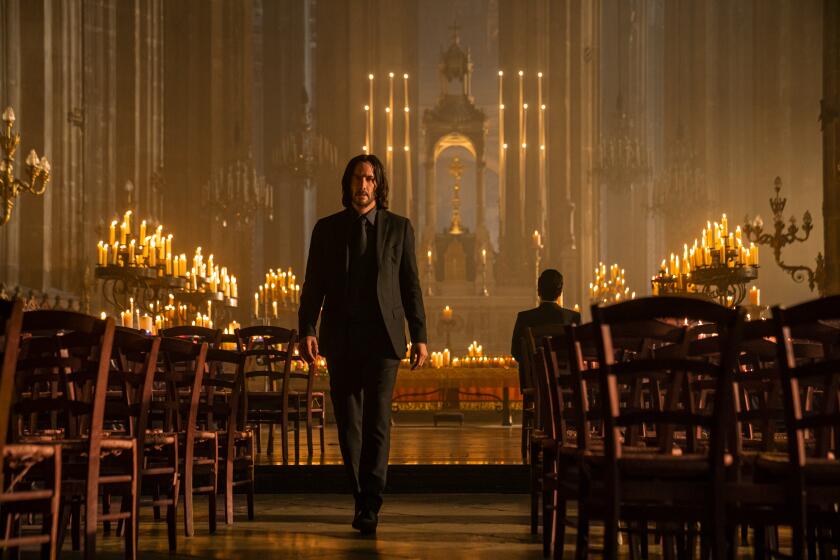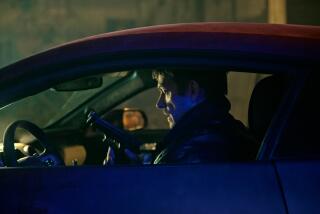‘The Continental’ review: A serviceable prequel to the ‘John Wick’ franchise
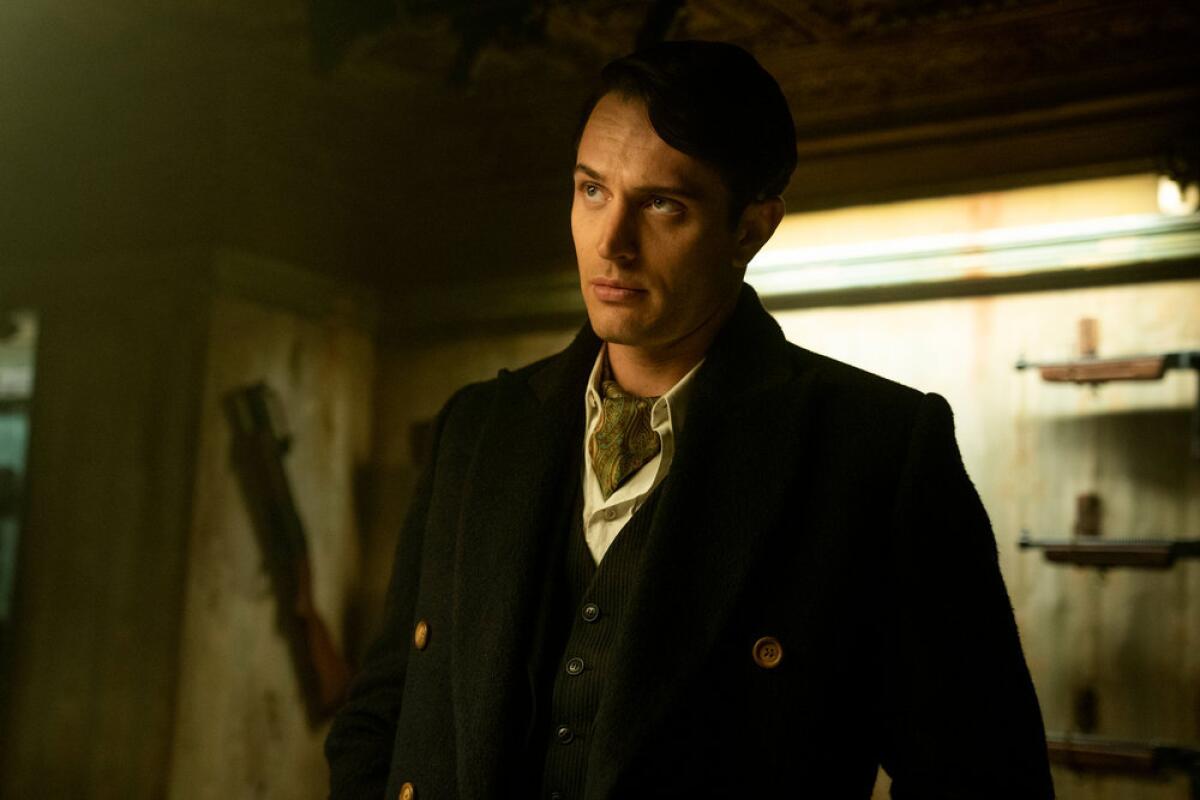
- Share via
I made myself familiar with the John Wick movies in the course of writing an appreciation of the late Lance Reddick, who played Charon, the concierge at an exclusive New York hotel — part of a chain, but what isn’t anymore? — reserved for assassins. The Continental’s main attraction, besides the usual amenities available at places only rich people can afford to stay, is that none of the killers are allowed to murder anyone while on the premises. So everybody can chill.
Of course, things don’t always go to plan, and apart from serving up varying portions of Reddick, Ian McShane and main course Keanu Reeves, the films are a sanguinary festival of fisticuffs, karate chops, spinning kicks, gunfire, stabbings, chases and exploding heads.
Lance Reddick was, at heart, the definition of a supporting actor, strengthening whatever show or movie he was in, including “John Wick,” “The Wire” and “Lost.”
That the hotel is the fruit of “an organization that predates the Roman Empire” leaves plenty of room for prequels. The first of what might turn out to be many, several or one, depending on how it goes over, is “The Continental: From the World of John Wick,” created by Greg Coolidge, Shawn Simmons and Kirk Ward and presented as a three-night television event, beginning Friday on Peacock.
Set in 1970s garbage-strike, garbage-strewn Lower Manhattan, with some flashbacks to the Bronx in the ‘50s and brief sequences in London and Vietnam, it involves highly successful con man Winston Scott (Colin Woodell, who will grow up to be McShane‘s character), who is kidnapped to the Continental on the order of its manager, Cormac (Mel Gibson). Cormac is upset because Scott’s estranged brother, Frankie (Ben Robson), has stolen the “ancient coin press” used to make the golden tokens by which Continental members identify themselves, and whose loss may be fatal to the organization, but more immediately does not bode well for Cormac.
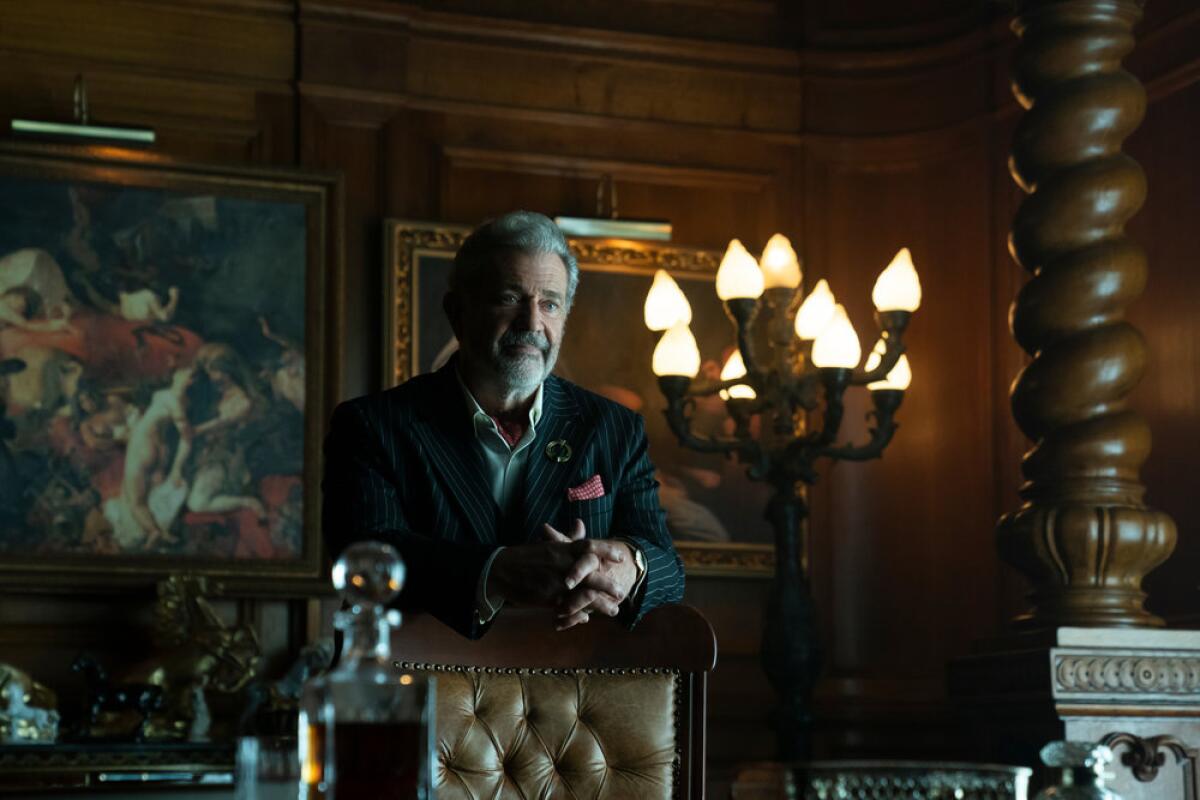
“You got old,” says Winston to Cormac, upon their meeting. (They know one another from the Old Neighborhood.)
“Yeah, I’m wearin’ a diaper,” says Cormac, which Gibson, in search of a Bronx accent, pronounces “diyapah.” “You know they oughta call this place the Incontinental.”
Their previous association is only one of many familial or coincidental connections between characters that support a plot that is more or less beside the point, being fundamentally an armature on which to hang a few hours of action. Among those who might be considered protagonists are Frankie’s Vietnamese wife, Yen (Nhung Kate); brother and sister gunrunners Miles (Hubert Point-Du Jour) and Lou (Jessica Allain); a younger Uncle Charlie (Peter Greene), played on the big screen by David Patrick Kelly, whose Mustang will survive into the movies as well; and KD (Mishel Prada), “the first female detective in the precinct,” who is sleeping, for no good reason, with her senior officer, Mayhew (Jeremy Bobb).
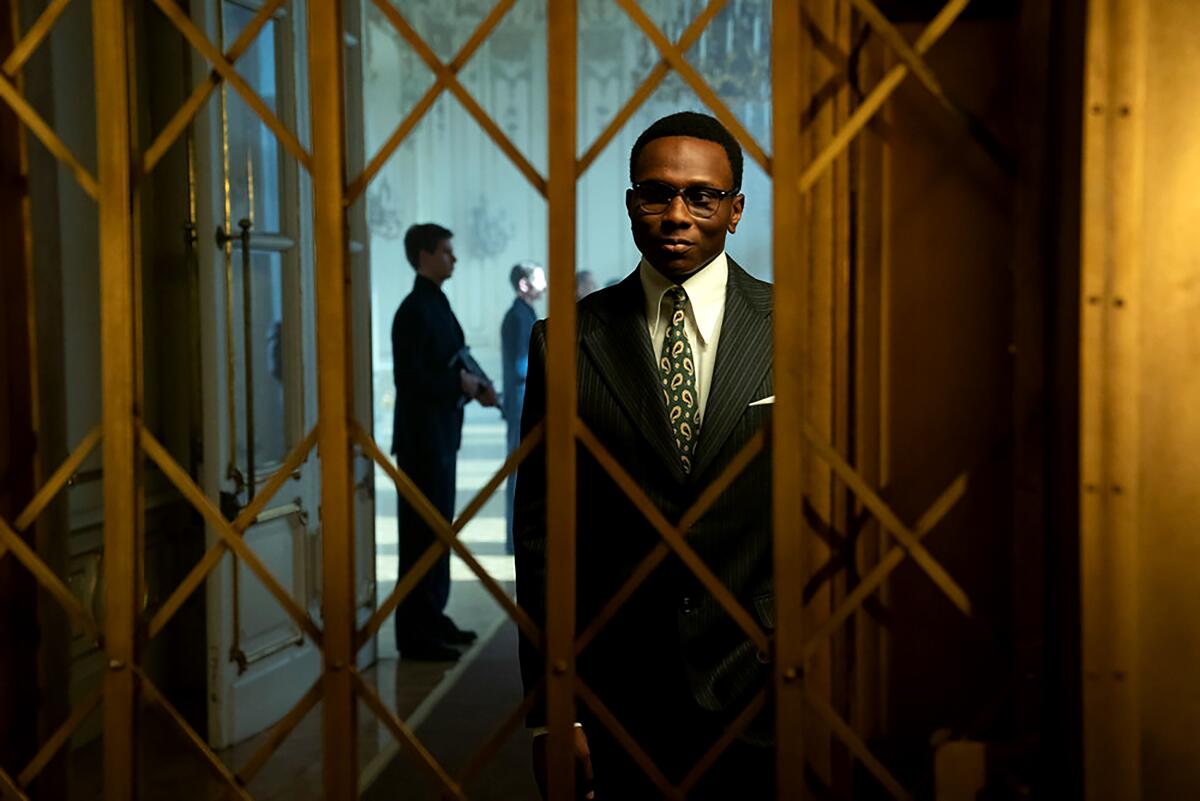
Over at the Continental, where the antagonists hang out, we meet, besides Cormac, Charon (Ayomide Adegun), the character later played by Reddick, and Eurotrash twin assassins Hansel and Gretel (Mark Musashi and Marina Mazepa); above them all is the Adjudicator (Katie McGrath), whose face is half hidden by a ceramic mask. The heroes are, in one way or another, scrappy underdogs, living in the city’s capacious underbelly; the villains are fancy.
You know whether you like this sort of thing — and I am guessing that if you do you will like this particular interaction just fine. It looks good; the production design, which has some fun with New York at the height of its graffiti-festooned decay, is admirable; the action is well staged in a way that does not seem completely impossible. Though the cast doesn’t match the authoritative presence of Reeves and McShane, the actors are up to what their parts require, and most either possess or do an excellent impression of possessing stunt skills. (Kate, speaking mostly Vietnamese, is the series’ most arresting, emotionally present presence; Gibson, especially in his climactic scenes, goes far over the top, but that is hardly a problem in this context.)
Keanu Reeves returns as a reluctant assassin in the globe-trotting ‘John Wick: Chapter 4,’ the latest entry in director Chad Stahelski’s action franchise.
If the dialogue is no more than serviceable, it says what it needs to; if the jokes are not really funny, these are not really funny people. The soundtrack is a jukebox of ‘70s sides employed variously to ironic, literal or random effect. What suspense there is exists primarily in wondering which “good” characters, if any, will be sacrificed in order to give the audience the feeling they’re feeling something; apart from the when and the how, there is no suspense regarding the worse characters, given that revenge is the series’ raison d’etre, and you are here to see villains get their comeuppance.
As revenge requires something suitably horrible to motivate it, there is a healthy, or perhaps unhealthy, portion of violence herein, which is on some level what sells tickets — not exactly brutality for its own sake, but among the specific thrills the preceding films will have led the audience to expect. I’m not exactly blaming video games, whose kill and kill again aesthetic has worked its way upon generations, for this gladiatorial conflation of the awful and the cool; they don’t seem unrelated, but then again, the revenge thriller is nothing new. (See, for example: the films of Charles Bronson, François Truffaut’s “The Bride Wore Black” or, for that matter, “The Odyssey.”) But there are certainly more heads exploding lately.
More to Read
The complete guide to home viewing
Get Screen Gab for everything about the TV shows and streaming movies everyone’s talking about.
You may occasionally receive promotional content from the Los Angeles Times.
